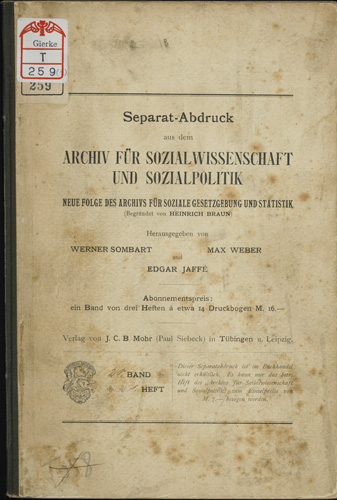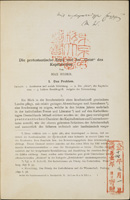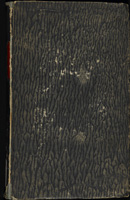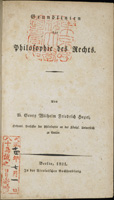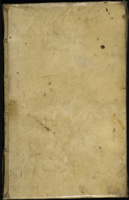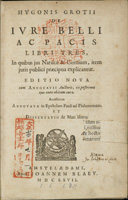The Otto Friedrich von Gierke Collection
The private library of Otto Friedrich von Gierke (1841-1921), a leader of the Germanist school of historical jurisprudence, was purchased in 1921. It comprises approximately 10,800 books, pamphlets and periodicals, and is particularyly strong in law and medieval history.
Literature
- Katalog der Otto von Gierke-Bibliothek in der Handels-Universitat Tokio, Tokio : Bibliothek der Handels-Universitat Tokio, 1930.
- 孫田秀春「ギールケ文庫入手のいきさつ」、『一橋大学附属図書館史』一橋大学、1975年
- 岩田新「Gierke目録について」、『一橋大学附属図書館史』一橋大学、1975年
- 勝田有恒「ギールケとその文庫」、『一橋大学社会科学古典資料センター年報』第2号、1982年
- 山田欣吾「ギールケ文庫の購入事情・補遺」、『一橋大学社会科学古典資料センター年報』第2号、1982年
- 秌場準一「ギールケ文庫と国際私法学の文献・資料」、『一橋大学社会科学古典資料センター年報』第11号、1991年
- 岩本吉弘「メンガー文庫、ギールケ文庫の事務資料の調査について」、『一橋大学社会科学古典資料センター年報』第16号、1996年
Weber’s Protestant Ethic and the Spirit of Capitalism
Die protestantische Ethik und der Geist des Kapitalismus
(Gierke/T.259)
Publication details
Die protestantische Ethik und der “Geist" des Kapitalismus / von Max Weber
Publisher: Tübingen : J.C.B. Mohr
Publication Date: [1905?]
Physical Description: 2 v. ; 23 cm
Notes: Caption title
“Separat-Abdruck aus dem Archiv für Sozialwissenschaft und Sozialpolitik. Neue Folge des Archivs für soziale Gesetzgebung und Statistik …, 20-21. Band 1. Heft"–Cover
Author: *Weber, Max, 1864-1920
Language: German
Explanation
Max Weber, 1864-1920, is well known as one of the most important social scientists of the twentieth century. Among all his works, the Protestant Ethic had the most profound influence on his contemporaries as well as on researchers of future generations. In this work, he deals with the formation of modern capitalism by bringing it closer to Protestant activities since Luther. The importance of this work to him is evident from the way in which it determined his later research interests.
The CHSSL copy is an offprint from the periodical in which this dissertation was first published. It was probably Weber himself who presented it to Gierke. On the first page of the first chapter is inscribed a complimentary dedication. It was in 1887, when Weber was studying jurisprudence in Berlin, that Gierke was appointed professor there. In 1889 Weber received his doctorate from Berlin University and in 1893 he was appointed as an adjunct professor in commercial law and German law at the same university. Both men were influential members of the Social Policy Association (Verein fur Socialpolitik), and it is therefore supposed that some interaction took place between them, especially as the Gierke Collection has some other copies thought to have been sent by Weber.
Hegel’s Elements of the Philosophy of Right
Grundlinien der Philosophie des Rechts
(Gierke/A.33)
Publication details
Grundlinien der Philosophie des Rechts / von Georg Wilhelm Friedrich Hegel
(Naturrecht und Staatswissenschaft im Grundrisse / zum Gebrauch für seine Vorlesungen von Georg Wilhelm Friedrich Hegel)
Publisher: Berlin : In der Nicolaischen Buchhandlung
Publication Date: 1821
Physical Description: xxvi, 355 p. ; 21 cm
Author: *Hegel, Georg Wilhelm Friedrich, 1770-1831
Language: German
Explanation
Georg Wilhelm Friedrich Hegel, 1770-1831, was the man who synthesized German Idealism. Elements of the Philosophy of Right ranks among his masterpieces, along with Phenomenology of Mind (1807) and The Science of Logic (1812-16). In this work, he discusses the modern State as a union of the idea of freedom and the state. He points out two media for this: one is alienation between the universal and the individual, or self-renunciation of the individual in support of the universal, and the other is reification according to which ideality constitutes social reality when social relations are substantiated in ideal illusions and these ideal illusions are adopted socially. This social approach to the problem of the universal was to have a great effect on Marx’s Capital. His ideas of Subject, Mind and Body, and the radical medium between the self and the alter became fundamental ideas of modern philosophy of all generations. His significant contributions cover also the philosophy of history and the history of philosophy, presenting a keen contrast to cartesian philosophy as anti-historicism.
Grotius’ On the Law of War and Peace
Hugonis Grotii De iure belli ac pacis libri tres …
(Gierke/V.18)
Publication details
Hugonis Grotii De iure belli ac pacis libri tres, in quibus jus naturæ & gentium, item juris publici præcipua explicantur
Edition: Editio nova, cum annotatis auctoris, ex postrema ejus ante obitum cura. Accesserunt annotata in Epistolam Pauli ad Philemonem et dissertatio De mari libero
Publisher: Amstelædami : Apud Ioannem Blaev
Publication Date: 1667
Physical Description: [6], xviii, 620, [110], 28, [2] p. ; 21 cm
Other title: VT:De ivre belli ac pacis libri tres
VT:De jure belli ac pacis libri tres
Notes: Last page blank
Includes bibliographical references and index
Author: Grotius, Hugo, 1583-1645
Language: Latin, Greek
Explanation
Hugo Grotius, 1583-1645, was a Dutch jurist and political scientist. He is often celebrated as the father of modern natural law theory and the father of international law. Among his many publications, his interest in international law appears in 1604-05 with his De Jure Praedae, or On the Law of Prize and Booty. This work, written at the request of the Dutch East India Company, supports the Dutch policy when the Company captured a Portuguese vessel. In 1618 religious and political circumstances led him to be condemned to life imprisonment as a leader of the Arminianist group. Jailed, he succeeded with his wife’s help in breaking out of prison, and in 1621 sought refuge in Paris, where the French king Louis XIII protected him. On the Law of War and Peace was written at that time. The place of publication of its first edition is therefore Paris, and it contains a complimentary dedication by Grotius to Louis XIII.
